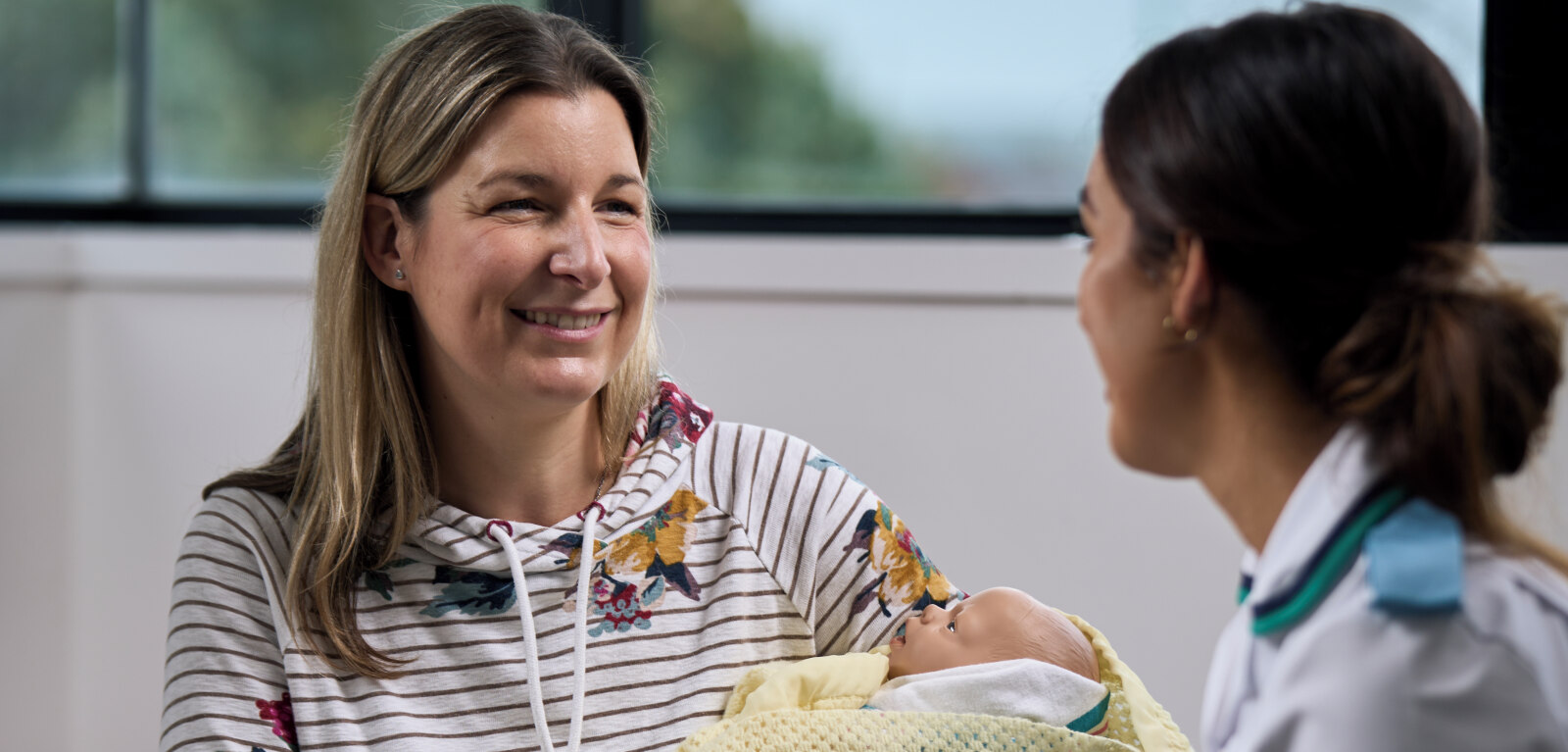Queen's and TU Dublin launch the Infant and Young Child Feeding in Emergencies Report
Ireland has a proud history of leading the way on public health but when it comes to protecting how our youngest citizens are fed in an emergency, we’re falling behind - according to a new report led by Queen's and Technological University Dublin.

The Infant and Young Child Feeding (IYCF) core group’s report called on the Irish government to take bold, forward-thinking action to shield infant and young child feeding from the unchecked influence of powerful corporations.
Emergencies, whether due to natural disasters, public health crises or other disruptions, can pose significant risks to infant and young child nutrition. Disruptions to food supply chains, lack of access to safe water, and inadequate breastfeeding support can lead to malnutrition, illness, and increased morbidity and mortality among vulnerable populations. Infants and young children are particularly vulnerable in such circumstances, yet there is currently no integrated plan for Infant and Young Child Feeding in Emergencies in Ireland.
The report, Infant and Young Child Feeding in Emergencies on the Island of Ireland: A Guidance Document for Creating an All-Island Preparedness Plan, was supported by funding from the North-South Research Programme. It highlights the importance of cross-border collaboration in addressing these challenges. By bringing together expertise from both jurisdictions, the project aimed to strengthen preparedness and ensure a coordinated approach to protecting infant and young child nutrition in emergencies.
The report’s editors, Dr Aileen Kennedy, Dr Liz O’Sullivan, and Dr Clare Patton, highlight the importance of embedding infant and young child feeding into emergency planning.
Commenting on the report, Dr Clare Patton from the University of Leeds/ Queen’s University Belfast said: “Ireland has a proud history of leading the way on public health. But when it comes to protecting how our youngest citizens are fed, we’re falling behind.
“It’s time for the government to take bold, forward-thinking action to shield IYCF from the unchecked influence of powerful corporations. Families across Ireland need legal protection that supports breastfeeding and guarantees safe, affordable access to formula when needed.
“In an emergency, a strong IYCF system isn’t a luxury – it’s a lifeline. Waiting until harm is done is not an option. We need protective legislation now – not an inquiry later.”
Dr Liz O’Sullivan from Technological University Dublin added: “Our research, and recent experiences of parents during storm Éowyn, has highlighted that families are not prepared or supported to manage infant and young child feeding during crises.
“Too long, emergency response systems nationally and internationally have assumed that parents will simply look after small children in emergencies. However, that’s a simplistic viewpoint and in reality, parents may need considerable support to do so.
To ensure Ireland is more resilient in the face of future emergencies, we must: protect, promote, and support breastfeeding now, ensure reliable access to affordable commercial milk formula (without promotion of same), provide families with the information and skills they need to prepare for emergencies, and ensure we have trained professionals ready to provide assistance and support to families in the face of an emergency that impacts infant and young child feeding.”
Dr Aileen Kennedy from Technological University Dublin further stated: "The EU’s new Preparedness Union Strategy recognises that crises are becoming more complex and unpredictable, and that we must be proactive rather than reactive. This is especially true for infants and young children, who are among the most vulnerable in any emergency due to their unique nutritional needs, limited nutrient reserves, and immature immune systems. Without the right support, they are at high risk of malnutrition and illness, which can have lasting consequences for their growth, development, and future potential.
"While we cannot predict exactly when emergencies will occur, climate change, global instability, and other emerging threats mean disruptions are becoming more likely. Ireland must take a forward-thinking approach, ensuring that infant and young child feeding is embedded into emergency preparedness planning at all levels, in line with wider EU resilience efforts. Families should not be left without the support they need when a crisis strikes.”
Full report: https://www.tudublin.ie/media/website/explore/schools/biological-and-health-sciences/IYCF-E.pdf
Media
Media enquiries to Zara McBrearty on email: z.mcbrearty@qub.ac.uk